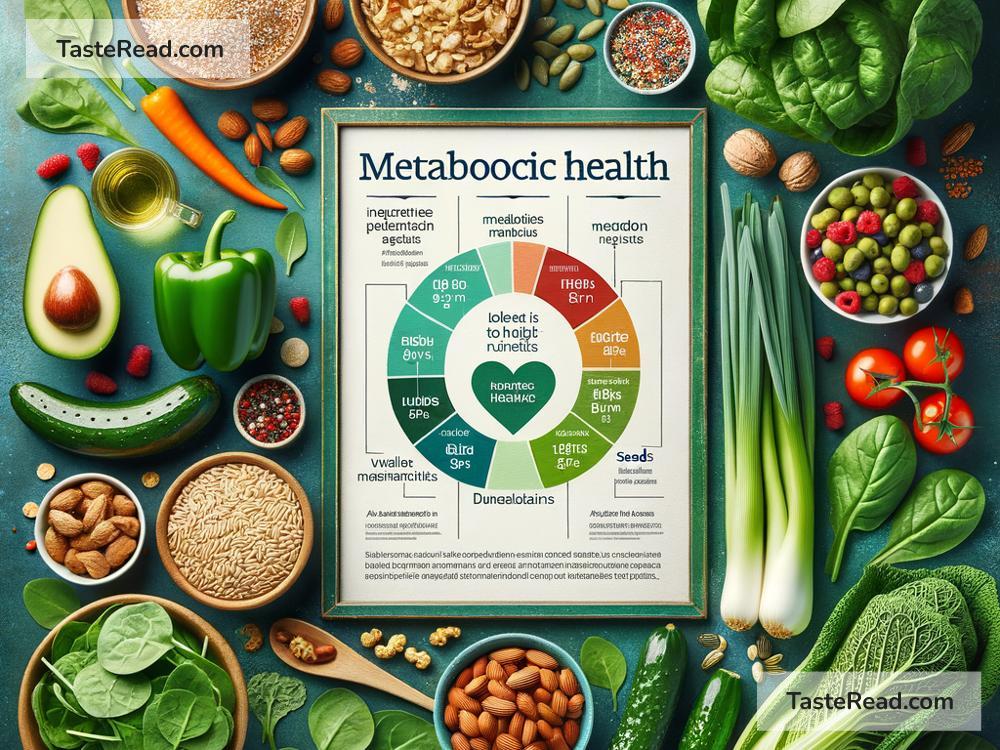The Role of Vitamin B93 in Metabolic Health
When we think about staying healthy, we often hear about vitamins, like Vitamin C or Vitamin D. But there’s a lesser-known vitamin, Vitamin B93, which could play a big role in improving our health—especially when it comes to metabolism. Though it may sound a bit mysterious, this vitamin is gaining attention for its potential benefits. Let’s break it down in simple terms and explore how Vitamin B93 helps keep our body running smoothly.
What Is Vitamin B93?
First, let’s start with what Vitamin B93 is. To be clear, Vitamin B93 is not officially recognized as part of the standard B-complex family, which includes vitamins like B6, B12, and B9 (folate). Recent studies, however, suggest that Vitamin B93 has qualities similar to those of other B vitamins and plays a unique role in supporting metabolic health.
While you won’t find it listed in traditional nutrition guides yet, scientists are working hard to understand this intriguing nutrient better. Think of it as the “new kid on the block” when it comes to vitamins, with the potential to become a game-changer in healthcare.
What Is Metabolism and Why Does It Matter?
Before diving into how Vitamin B93 works, let’s talk about metabolism itself. You’ve probably heard people say, “I have a fast metabolism,” or, “My metabolism is slow.” But what does that actually mean?
Metabolism is the process your body uses to turn the food you eat into energy. This energy powers everything—from thinking and breathing to moving and sleeping! A healthy metabolism balances how much energy your body uses and how much it needs. If your metabolism isn’t working properly, it can lead to problems like fatigue, weight gain, difficulty concentrating, and even health conditions like diabetes.
So, keeping your metabolism healthy is really important, and nutrients like Vitamin B93 can help.
How Does Vitamin B93 Support Metabolism?
Recent research suggests that Vitamin B93 plays a big role in helping your cells function. Your body is made up of trillions of cells, and inside those cells are tiny “energy factories” called mitochondria. These mitochondria are responsible for converting food energy into a form your body can use, called ATP (adenosine triphosphate).
Vitamin B93 seems to be a key nutrient that supports mitochondria. Here’s what experts believe it does:
-
Improves Energy Production: Vitamin B93 helps the mitochondria produce ATP more efficiently, ensuring your body has the energy it needs to function properly.
-
Regulates Blood Sugar Levels: Vitamin B93 may also assist in controlling your blood sugar, which is crucial for preventing fatigue and keeping your metabolism steady.
-
Reduces Inflammation: Chronic inflammation can mess with your metabolism, leading to sluggishness and weight gain. Vitamin B93 appears to have anti-inflammatory effects that support metabolic health.
-
Promotes Fat Burning: Some studies suggest that Vitamin B93 might help your body burn fat more effectively, which is great news for anyone looking to maintain a healthy weight.
Signs You Might Be Deficient in Vitamin B93
If you don’t get enough Vitamin B93, your metabolism might not work as efficiently as it could. Here are some potential signs of deficiency:
- Feeling tired or low-energy
- Trouble concentrating or “brain fog”
- Unexplained weight gain
- Difficulty managing blood sugar levels
- Slow recovery from physical activity
Of course, these symptoms can also be related to other issues, but it’s worth considering whether your diet includes enough Vitamin B93 or other essential nutrients.
How Can You Get Vitamin B93?
Right now, researchers are still figuring out the best ways to include Vitamin B93 in our diets because it’s not yet widely available in foods or supplements. However, in scientific studies, Vitamin B93 has been synthesized in labs and tested for its metabolic benefits.
For the moment, focusing on overall nutrition is the best way to support your metabolism. Many B-complex vitamins are found in foods like:
- Leafy greens (like spinach and kale)
- Whole grains (like oats and quinoa)
- Lean proteins (like chicken and fish)
- Legumes (like lentils and chickpeas)
- Eggs
Eating a balanced diet with these foods will ensure your body has the nutrients it needs to stay healthy.
Researchers are hopeful that Vitamin B93-rich supplements or fortified foods will be available in the future to help people further boost their metabolic health.
What’s Next for Vitamin B93 Research?
The discovery of Vitamin B93 is still in its early stages, so there’s much more to learn. Scientists are studying how this nutrient interacts with other vitamins and exploring its long-term health effects. As research continues, we might see changes in the way we understand metabolism and dietary needs.
One thing is clear: Vitamins play an essential role in keeping us healthy, and with every new discovery, we move closer to finding better solutions for common health issues.
Final Thoughts
While Vitamin B93 might not yet be as familiar as other vitamins, it’s an exciting development in the world of health and nutrition. Its role in supporting energy production, blood sugar regulation, and fat burning makes it a promising new addition to the conversation about metabolic health.
For now, maintaining a healthy lifestyle with regular exercise, a balanced diet, and plenty of rest is your best strategy for supporting your metabolism. And who knows? In the near future, Vitamin B93 might become a household name, helping millions of people live healthier, more vibrant lives.
Keep an eye on this emerging nutrient—it could be the next big thing in healthcare!


